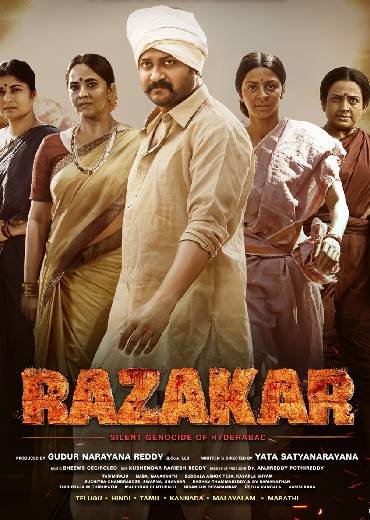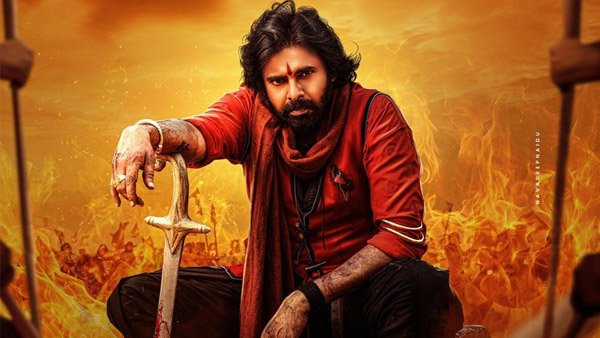Movie Review: Razakar
Rating: 3.7/5
Director: Yata Satyanarayana
Producers: Gudur Narayan Reddy
Music Director: Bheems Ceciroleo
Cinematographer: Ramesh Kushendar
Starring: Raj Arjun, Markand Deshpande, Bobby Simha, Anasuya, Vedhika, Tej Sapru, Indraja, Thalaivasal Vijay
Razakar: A Haunting Look at a Forgotten Genocide Razakar, directed by Yata Satyanarayana, is a historical drama that delves into a disturbing yet significant chapter in Indian history – the period of violence and unrest in Hyderabad under the rule of the Nizam. Released in March 2024, the film doesn’t shy away from portraying the brutalities of the era, offering a stark but essential reminder of the struggles faced by many.
Set against the backdrop of India’s independence in 1947, Razakar throws light on the contrasting realities. While the nation celebrated its liberation from British rule, Hyderabad remained under the control of the Nizam, who refused to join the Indian Union. This resulted in a tense standoff, with the Razakars, a paramilitary force led by the ruthless Qasim Razvi (played by Raj Arjun), unleashing terror on the Hindu population. The film chronicles the plight of ordinary people caught in this web of violence, culminating in the intervention by the Indian Army under Operation Polo.
Razakar’s greatest strength lies in bringing to light a period often overlooked in mainstream history. The film doesn’t shy away from depicting the horrific acts committed by the Razakars, including forced conversions and violence. This unflinching portrayal, backed by meticulous research and detailed sets, creates a compelling and informative narrative. The inclusion of pivotal figures like Sardar Vallabhbhai Patel and the depiction of Operation Polo add further depth, providing historical context to the events.
Powerhouse performances elevate the film’s emotional impact. Raj Arjun delivers a chilling portrayal of the menacing Qasim Razvi, while Makarand Deshpande embodies the arrogance and cruelty of the Nizam. The film also boasts strong supporting performances from actors like Anasuya and Bobby Simha, who effectively portray the resilience of the common people caught in the crossfire.
Technically, Razakar is impressive considering potential budgetary limitations. Bheems Ceciroleo’s music adds a layer of emotional intensity to the narrative, while Ramesh Kushendar’s evocative cinematography transports viewers back in time. The production design effectively recreates the era, and the VFX, while not overused, serve their purpose well. Director Yata Satyanarayana deserves credit for his unwavering commitment to portraying this difficult chapter with honesty and sensitivity.
However, the film isn’t without flaws. The first half, while setting the stage, can feel sluggish at times due to repetitive scenes. Additionally, the graphic depiction of violence might be disturbing for some viewers, potentially hindering their overall experience.
Overall, Razakar is not a film for light entertainment. It’s a stark and poignant reminder of a dark period in Indian history. While pacing issues mar the initial stages slightly, the film redeems itself with a gripping narrative, powerful performances, and commendable technical aspects. For those with an interest in historical dramas, particularly those focused on lesser-known chapters, Razakar is a must-watch. It compels viewers to confront the past and serves as a testament to the resilience of the human spirit in the face of adversity.
Last Updated on Saturday, March 16, 2024 7:38 am by Admin






